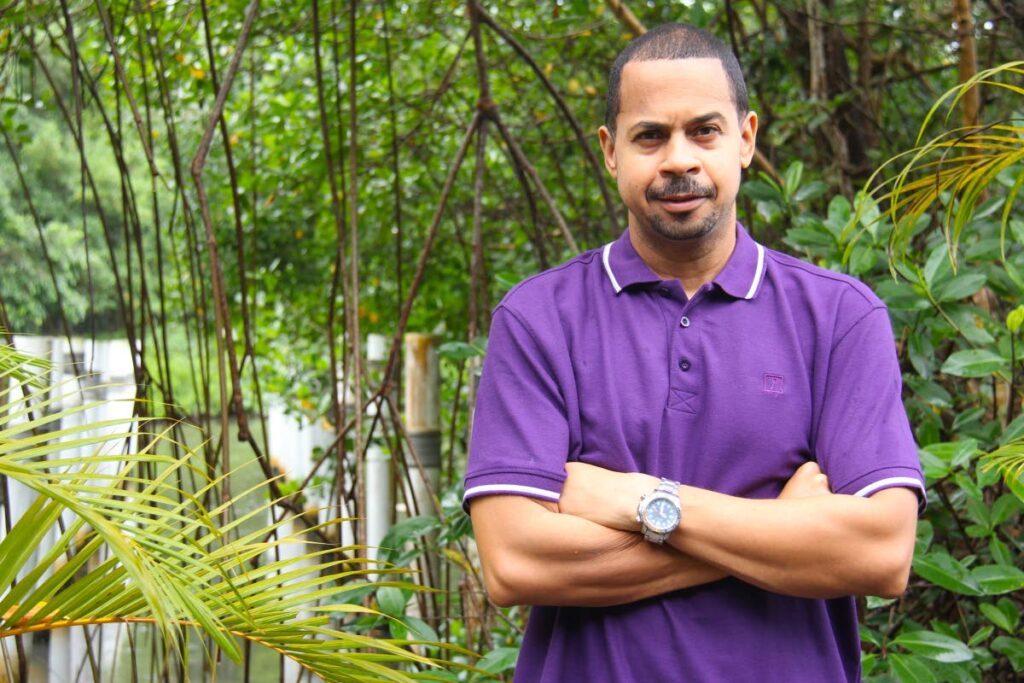Heat in de place!

Paolo Kernahan
WHAT DO you mean hotter? I've been walking around like the human torch for months now. There's little difference between night and day these days, save for the absence of light.
From 7 am the whole place feels like the kitchen at Christmas. Trying a shower to cool down? Take some third-degree burns courtesy of the free solar water heater! So when the Met Office recently issued a yellow alert warning of extreme heat I thought, well we're going to be pillars of ash now.
Record-breaking temperatures were recorded last month – 34 degrees (hottest day of this year.) The hottest day on record was above 36 degrees in 1990. The Met Office also recorded warmer mornings at 27 and 28 degrees; considered well above the average on TT's climate records.
How are people getting on amid the worst effects of this punishing swelter? Imagine standing at the roadside and flagging down transportation beneath the withering sun, only to jump in a taxi savin' on AC.
How do children cope with the draining slog to school, only to sit in airless convection ovens for hours on end? Air-conditioned classrooms aren't the norm across public education. In many cases, basic fans are an oddity in schools.
Education Minister Nyan Gadsby-Dolly poured cold water on questions about the welfare of students in such infernal conditions. "This is a tropical country...in my school days it was hot...teachers and principals have the matter in hand" – or words to that effect. Not surprising for an administration sharing an incurious hive mind; de place hot – deal wid it.
Without getting into the weeds on climate change, certain factors are often overlooked in conversations about these extreme conditions. Over the last 30 years in this country, there has been a considerable increase in our human footprint – housing, commercial buildings, roads, car parks and concrete surfaces.
An EMA report recorded TT's forest cover at just 32 per cent – in 2012. Fifty per cent of our wetlands have been lost; that statistic is even more outdated. Illegal quarrying, development and slash-and-burn farming all reduce this country's physical capacity to cope with searing temperatures.
Additionally, there are fewer trees in urban areas than there were just a few years ago. Tree cover is sacrificed to accommodate more housing and parking spaces. Individual homeowners also remove fruit trees for added square footage and to discourage pipers from scaling walls and fences.
While on average aggregate temperatures have increased, some would argue, marginally over time (our temperature has risen two and a half times above the global average between 1945 to 2019) our impact on the landscape intensifies the heat we feel today.
Trees, particularly vegetation in urban areas, are shown to reduce temperatures by as much as three degrees. This cooling effect also cuts down on energy consumption for air conditioning. Buildings and homes shaded by trees are spared the worst of fierce daytime temperatures.
TT isn't the only country bombarded with oppressive heat. What's different is how more enlightened societies confront intensely hot and dry weather. In Medellin, Colombia, city planners create green corridors – areas lined with vegetation to shield pedestrian and cycling traffic from the punishing sun.
In Indonesia roofs of industrial buildings are painted white to reflect some of the sun's rays. This is said to reduce indoor temperatures by as much as ten degrees.
By stark contrast, even in our green spaces, trees are relatively sparse. In the Aranguez Savannah, there were three sprawling samaan trees. One died a few years ago and the other two look like they've reached the end of their run.
Shade is a scarce commodity on this grassy griddle. There are vast allotments for playing fields, few of which are used. Only a smattering of trees clings on at the periphery.
The Queen's Park Savannah (QPS) is often called the lungs of Port of Spain. For the most part, however, tree cover is relegated to the outskirts while the majority of this open space is useless grass. So much for keeping the city cooler. More tree cover at the QPS would probably also help with water runoff in a cityscape that floods after the briefest of showers.
There are consequences to continued heating – rising energy consumption, lower productivity, higher food costs, reduced water production and, in the case of children, weakened performance in school.
Yes, we are a tropical country, which is precisely why we need to be more forward-thinking when it comes to adapting to a hotter climate.


Comments
"Heat in de place!"